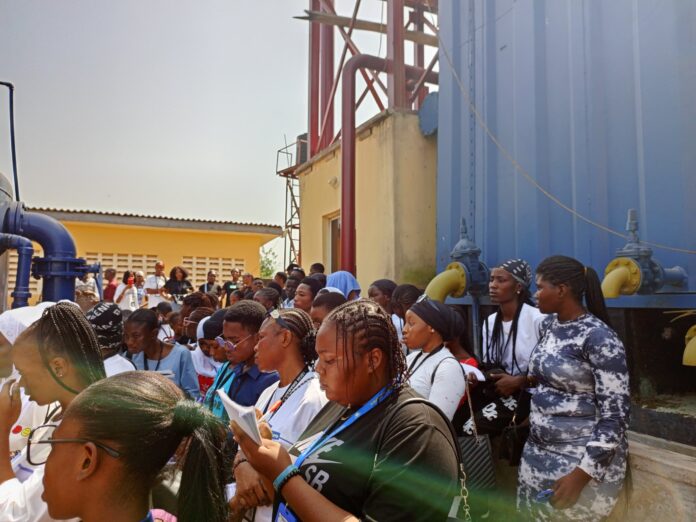A Day of Discovery: Field Trip to UI Water Treatment Plant and Zoo
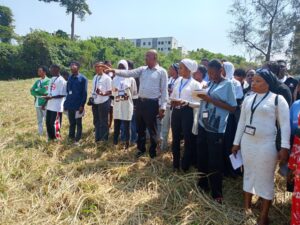
An engaging field trip to the University of Ibadan gave students insights into water and sewage treatment, bioremediation, and wildlife conservation.
Field Trip Report: A Memorable Excursion to UI Water Treatment Plant, Sewage Plant, and Zoological Garden
Date of Visit: December 8, 2024
Location: University of Ibadan (UI), Ibadan
Introduction
On December 8, 2024, students from Biology 300 and 400 level class embarked on an insightful field trip to the University of Ibadan (UI). The excursion included visits to the Awba Dam, the university’s water and sewage treatment plants, and its Zoological Garden.
The purpose of this trip was to provide students with practical exposure to processes covered in class, such as water recycling, sewage treatment, and bioremediation. Additionally, the visit aimed to connect theoretical microbiology concepts to real-life applications, while the tour of the Zoological Garden encouraged the exploration of animal habitats and anatomy.
This unique combination of industrial and ecological exposure proved both educational and inspiring for the participants.
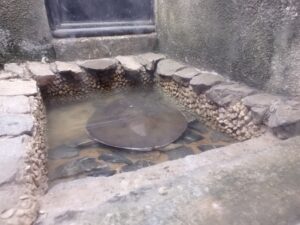
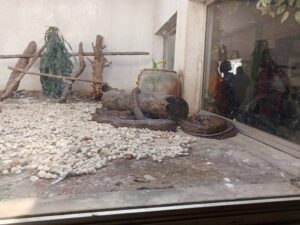
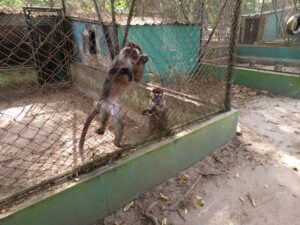
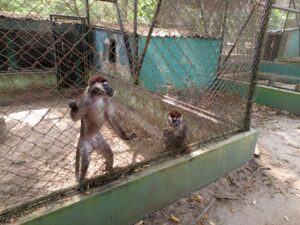
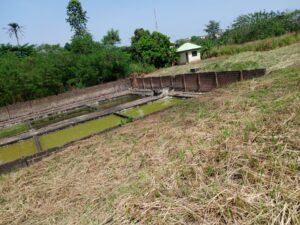
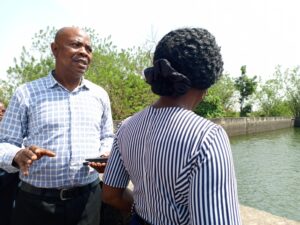 is
is
Visit to the Water Treatment Plant
The excursion began with a guided tour of the Awba Dam and the water treatment plant, led by Engineer Ojedele Ayomide. Students observed the meticulous processes used to treat raw water sourced from both the Awba Dam and Eleyele Dam.
Key Processes Observed
1. Aeration:
Raw water undergoes aeration, where it is exposed to air and UV sunlight. This process facilitates oxidation, which eliminates certain impurities and denatures microorganisms.
2. Chemical Treatment:
Alum and lime are added to the water to coagulate impurities, while chlorine is used to disinfect the water and kill pathogenic organisms.
3. Filtration and Sedimentation:
The water passes through layers of gravel, coarse sand, fine sand, and activated carbon, which remove finer impurities.
Heavier particles settle in the sedimentation tanks, leaving cleaner water for use.
4. Storage and Distribution:
Treated water is stored in tanks with a 50,000-liter capacity before being distributed to various stations across the campus.
Educational Insights
Students learned about the importance of microbiology in water treatment, particularly the role of microbial elimination in ensuring safe drinking water. The visit also highlighted sustainable practices, such as the efficient recycling of water.
Visit to the Sewage Treatment Plant
The next stop was the sewage treatment plant, where students were introduced to processes used to purify wastewater. This segment emphasized the importance of bioremediation and sustainable wastewater management.
Sewage Treatment Highlights
Wastewater passes through a series of valves and treatment chambers.
Microbes are introduced to break down organic pollutants and degrade harmful substances like heavy metals.
Treated water can be reused for non-potable purposes, making it a renewable resource.
The experience provided students with a practical understanding of how microbiological methods are applied in sewage treatment, how clean water is being recycled from sewage thus reinforcing lessons learned in class.
Exploring the Zoological Garden
The final part of the excursion took place at the Zoological Garden, where students observed various animal species and learned about their habitats. The tour provided insights into comparative vertebrate anatomy and behavioral patterns.
Animals Observed
White Geese: Known for their hierarchical behavior, these birds showcased unique social dynamics.
Nile Crocodile: This reptile demonstrated the importance of ecological balance and adaptation.
Other Species: Monkeys, baboons, lions, turtles, and a variety of birds and reptiles were also observed.
The visit gave a more understanding of the course comparative animal physiology and anatomy it encouraged students to think critically about wildlife conservation and the role of zoos in preserving endangered species.
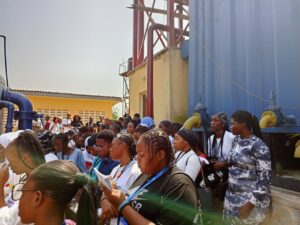
Student Feedback
Here’s what some participants had to say:
“The water treatment plant tour gave me a clear picture of how microbiology is applied in real life.” – Thomas Hannah 400 level Biology
“Observing the animals at the zoo was a fun and educational experience. I gained a better understanding of animal behavior.” – Agbaje Idris Oluwadamilare 300 level Biology

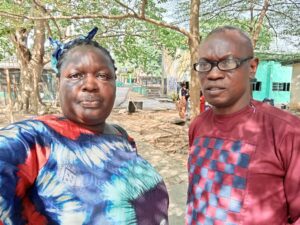
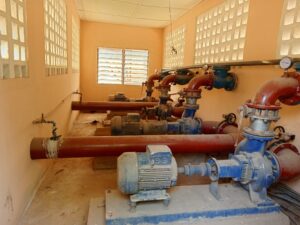
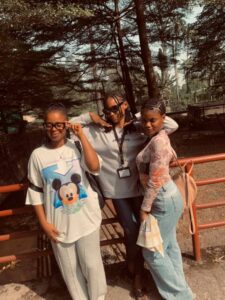
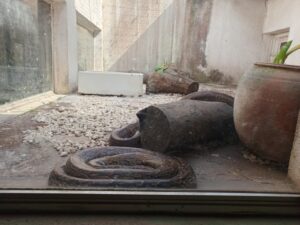
“The sewage treatment plant visit was fascinating. It showed me how wastewater can be reused, which is critical for sustainability.” – Sabiu Faruq Olumide 400 level Biology
The trip was an eye opener and would love to explore now I understand better and the treatment was perfect we were well fed and had fun. Oyatope Folashade Bukola 300 level Biology
The excursion to the University of Ibadan’s water and sewage treatment plants, along with the Zoological Garden, was an unforgettable learning experience. It provided students with practical insights into water recycling, microbiological applications, and wildlife conservation.
This trip not only reinforced classroom knowledge but also inspired participants to think critically about sustainable practices and the interconnectedness of science and nature. We encourage more students to participate in such excursions to enrich their academic journey.
